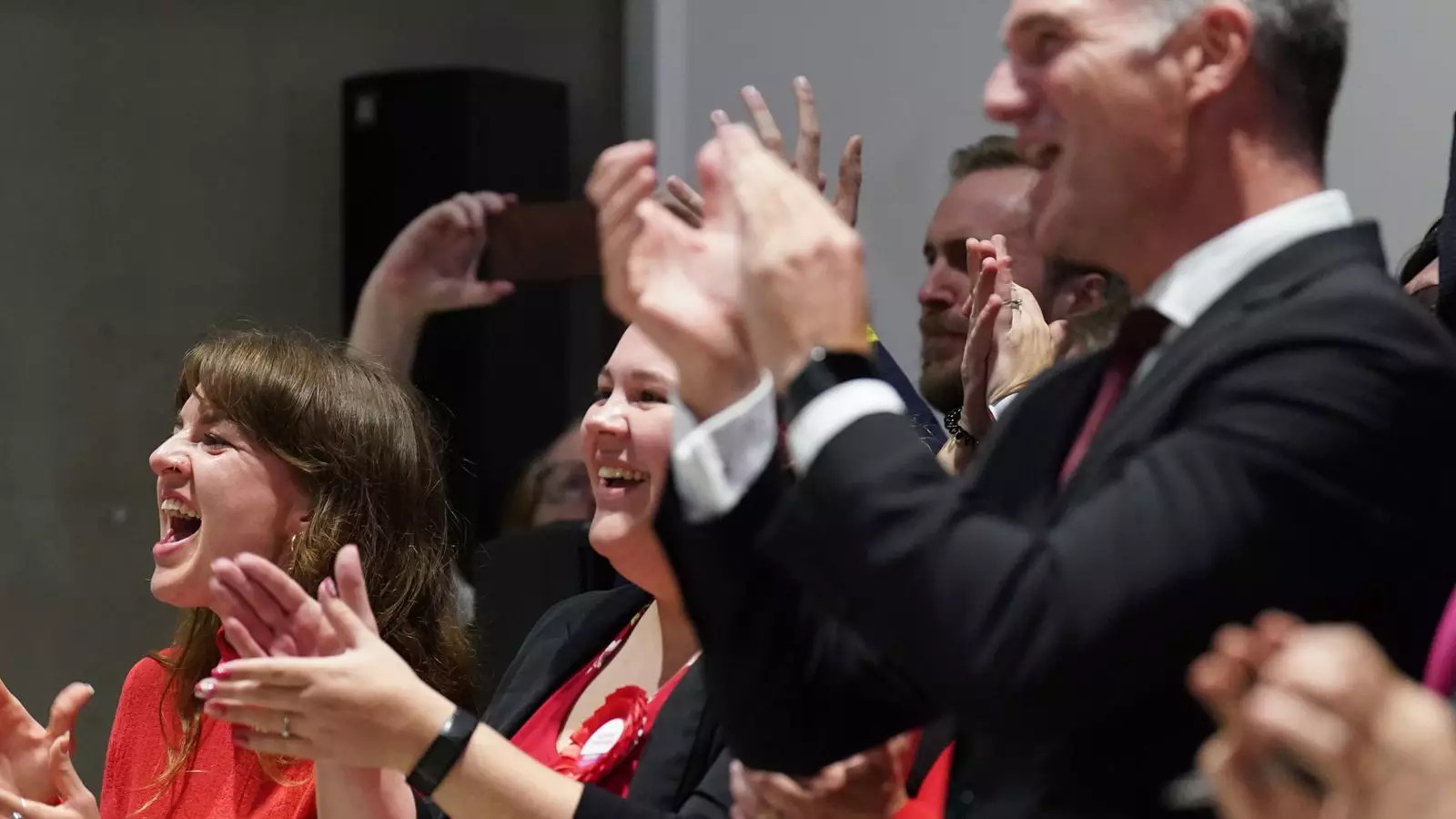In what many are calling a “political earthquake,” the Labour Party has achieved remarkable victories in the Tamworth and Mid Bedfordshire by-elections, toppling significant Conservative majorities. Labour leader Sir Keir Starmer hailed these wins as a crucial moment that could reshape the UK’s political landscape, positioning his party as a viable alternative ahead of the general election expected next year. The by-elections were triggered by the high-profile departures of the previous Conservative MPs, adding further significance to the results.
Tamworth: Eradicating a 19,600 Conservative Majority
Tamworth, a Conservative stronghold, saw a dramatic turnaround as Labour secured a swing of 23.9 percentage points, effectively wiping out the Tories’ previously commanding 19,600 majority. This historic result marks the second-highest-ever by-election swing to Labour. The voters’ message is clear: there is a strong desire for change, and they are willing to place their trust in a revitalized Labour Party to deliver it.
Mid Bedfordshire: Breaking a Tory Tradition
Meanwhile, in Mid Bedfordshire, Labour achieved an extraordinary feat by overturning the largest numeric Tory majority ever recorded in a by-election since 1945. The Conservatives had held this rural seat since 1931, securing a massive majority of 24,664 in the 2019 general election. Labour’s triumph in breaking this long-standing Tory tradition demonstrates their growing appeal and resonates with voters who were once considered solid supporters of the Conservative Party.
Sir Keir Starmer captured the significance of these victories by stating, “Winning in these Tory strongholds shows that people overwhelmingly want change and they’re ready to put their faith in our changed Labour Party to deliver it.”
The resignations of the previous MPs in both constituencies played a role in these by-elections. In Mid Bedfordshire, former cabinet minister Nadine Dorries resigned out of frustration at being denied a peerage in Prime Minister Boris Johnson’s resignation honours list. Likewise, in Tamworth, Chris Pincher stepped down following allegations of drunkenly groping two men at London’s exclusive Carlton Club. The mishandling of Pincher’s situation also contributed to the chain of events that resulted in Johnson’s exit from No 10.
While the Tories attempted to downplay the significance of these defeats, leading figures within the government acknowledged the need for reflection. Health Minister Maria Caulfield brushed off the notion that Labour’s victories reflected momentum for the party as a whole, emphasizing that many on the doorstep still saw Keir Starmer as an uninspiring alternative. However, elections expert Professor Sir John Curtice viewed the results as extremely bad news for the Conservatives, suggesting that Prime Minister Rishi Sunak’s leadership could be leading the party on a path to general election defeat. Curtice warned that unless the Conservatives make dramatic changes, they are staring at defeat in 12 months’ time, with votes potentially shifting to both Labour and right-wing party Reform UK.
Labour’s Remarkable Wins
Labour’s successful candidates, Sarah Edwards in Tamworth and Alistair Strathern in Mid Bedfordshire, delivered inspiring victories with slim majorities of 1,316 and 1,192, respectively. In her victory speech, Edwards called on Prime Minister Sunak to “do the decent thing and call a general election,” while Strathern emphasized that nowhere is off-limits for the rejuvenated Labour Party.
Shadow Cabinet member Peter Kyle, who ran the campaign in Mid Bedfordshire, declared that Labour had unleashed a “political earthquake” on the Conservatives. The message from these victories is clear: the country deserves better, and Labour stands as the alternative.
Liberal Democrats and the Anti-Conservative Vote
Although the Liberal Democrats came third in Mid Bedfordshire—a seat they had hoped to win—they viewed the result positively. The party doubled its vote share, leading them to believe that in a general election, they could win “dozens of seats off the Conservatives.” This outcome highlights the potential impact of a split in the anti-Conservative vote, a concern that Tories may have sought to exploit for a narrow victory.
Ironically, as the by-election results were announced, Prime Minister Rishi Sunak found himself out of the country, spending the night in Saudi Arabia on a Middle East tour. The timing of these defeats, coming precisely a year after his predecessor, Liz Truss, resigned as prime minister, adds further pressure as Sunak concludes his challenging first 12 months in office.
The Aftermath and the Road Ahead
Labour’s astonishing victories in Tamworth and Mid Bedfordshire have sent shockwaves through the Conservative Party. It is clear that the British electorate is hungry for change and demands more from their government. The challenge for Labour is to maintain this momentum and present a compelling vision for the country, while the Conservatives must confront their shortcomings and communicate a message that resonates with the voters. With the general election looming on the horizon, the political landscape is poised for further shifts and surprises that will shape the future of British politics.


Leave a Reply